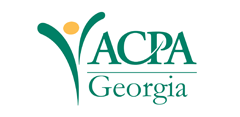Abstract
Integrity development has been recognized as a common outcome at many colleges and universities (Association of American Colleges & Universities, 2012; Chickering & Reisser, 1993; Dugan & Komives, 2007; Higher Education Research Institute, 1996). Thus, it is important to create academic and student affairs collaborations that promote the development of students’ integrity and values clarification. In this article, we briefly discuss existing and new integrity research that informs how practitioners and administrators can structure environments supportive of students’ value clarification and congruence with their actions on campus. We use student Honor Codes/Codes of Conduct as an example source of collaboration on campus.
First Page
95
Last Page
107
Copyright Statement / License for Reuse
Digital Commons@Georgia Southern License
This work is archived and distributed under the repository's standard copyright and reuse license, available here. Under this license, end-users may copy, store, and distribute this work without restriction. For questions related to additional reuse of this work, please contact the copyright owner.
Recommended Citation
Garrett, J. M., & Lange, A. C. (2014). Collaborating with academic affairs to cultivate environments that support student integrity. Georgia Journal of College Student Affairs, 30(2), 95-107. https://doi.org/10.20429/gcpa.2014.300208
Supplemental Reference List with DOIs

